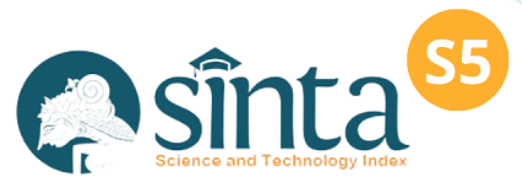PENGARUH TEKNOLOGI TERHADAP PERTUMBUHAN EKONOMI PETANI KELAPA SAWIT
DOI:
https://doi.org/10.46880/mtx.Vol4No2.pp116-122Keywords:
ICM Technology, Implementation Level, Productivity, Technical EfficiencyAbstract
Domestic oil palm needs will continue to increase, it is estimated that national oil palm needs in 2035 will reach 36 million tons. Meanwhile, national rice production capacity is experiencing slow growth or tends to be stagnant. So that it needs an increase in productivity or technical efficiency through the Integrated Crop Management (ICM) model approach. This study aims to analyze the level of rice ICM technology implementationand the factors that influence the level of rice ICM technology implementation and its effect on the technical efficiency of oil palm farming in Langkat Regency. Determination of the sample using purposive sampling method, a sample of 60 farmers in the District of Cariu, Pamijahan, and Leuwisadeng of Langkat Regency were analyzed using the scoring method, multiple linear regression models, and the stochastic frontier analyze method. The results showed the level of oil palm ICM technology implementation in LangkatRegency was classified as moderate (71,54 percent), while the technology component with the highest level of application was jajar legowo spacing of 2:1 (98,50 percent) and the lowest was the use ofmanure (27 percent). Factors that influence the level of rice ICM technology implementation at α level of5 percent are non-farm income with an estimated value of 3,318, intensity of SLPTT and non SLPTT training with an estimated value of 2,236, and dummy farmer's employment status with an estimated value of 2,127. While the experience factor of farming with an estimated value of 0,110 and the duration of formaleducation of farmers with an estimated value of 0,403 has an effect on the level of α of 10 percent. The level of oil palm ICM technology implementation with an estimated value of -0,0855 and farmer access to obtain credit with an estimated value of -0,0348 has an effect on the technical efficiency of rice farming at α level of 1 percent, while the land ownership status with an estimated value is -0,2527 at α level of 10 percent. The average level of technical efficiency of oil palm farming in Langkat Regency is not optimal (67,4 percent), this is due to, among others, the application of technological components that are still relatively low or not as recommended by ICM. Therefore, efforts are needed to increase motivation and farmer participation in implementing ICM technology optimally and sustainably to help meet national oil palm needs.







